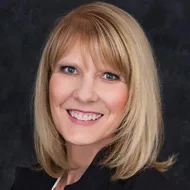When the Tax Cuts and Jobs Act was signed into law late last year to help simplify the tax code and relieve the burden for many Americans, small business owners across America who took time to understand what the changes meant weren’t celebrating. After all, for most small business owners, especially those who are service based, the new guidelines took away a substantial write-off—50 percent of their business meals and entertainment.
 “For a business our size, the meals and entertainment expense represents our marketing,” says Kathy Warnick, past chair of NAWBO National and owner of the accounting consulting firm Warnick Consultants, LLC. “We meet potential clients for coffee or lunch or possibly happy hour. Or we might invite them to the theatre. I’ve been advocating for a number of years for a 100 percent deduction of meals and entertainment and instead, they took away the 50 percent we had. I think part of the problem is the definition of small businesses—it’s based on the number of employees a company might employ versus what their annual revenue is. Consequently, you have companies with 50 to 500 employees who make several million dollars annually and companies with six employees, like mine, who make nowhere near that being taxed the same. They need a designation for micro businesses versus small businesses.”
“For a business our size, the meals and entertainment expense represents our marketing,” says Kathy Warnick, past chair of NAWBO National and owner of the accounting consulting firm Warnick Consultants, LLC. “We meet potential clients for coffee or lunch or possibly happy hour. Or we might invite them to the theatre. I’ve been advocating for a number of years for a 100 percent deduction of meals and entertainment and instead, they took away the 50 percent we had. I think part of the problem is the definition of small businesses—it’s based on the number of employees a company might employ versus what their annual revenue is. Consequently, you have companies with 50 to 500 employees who make several million dollars annually and companies with six employees, like mine, who make nowhere near that being taxed the same. They need a designation for micro businesses versus small businesses.”
 Sandra Clitter, owner of Your Tech Tamer, LLC, shares a similar perspective: “There aren’t a lot of small- to mid-sized businesses with large marketing budgets for print and media ad buys. We get out in our communities and get known. We grow because of relationships—not because we take out ads. These relationships are built at Main Street coffee shops, restaurants and diners and by taking clients to a ballgame. My spend in a year is under $5,000, but it’s my entire marketing budget. I really believe that this part of the tax bill was an unintended consequence of trying to prevent abuse by large corporations, but the broad brush used in the language wiped out what equates to the entire marketing budget for most small- and mid-sized firms.”
Sandra Clitter, owner of Your Tech Tamer, LLC, shares a similar perspective: “There aren’t a lot of small- to mid-sized businesses with large marketing budgets for print and media ad buys. We get out in our communities and get known. We grow because of relationships—not because we take out ads. These relationships are built at Main Street coffee shops, restaurants and diners and by taking clients to a ballgame. My spend in a year is under $5,000, but it’s my entire marketing budget. I really believe that this part of the tax bill was an unintended consequence of trying to prevent abuse by large corporations, but the broad brush used in the language wiped out what equates to the entire marketing budget for most small- and mid-sized firms.”
Sandra adds that, “Tax rulings get done for Fortune 500 businesses and it’s people like me who then have to scramble to keep up. I do my best to comply appropriately, but in this case, I was like, ‘Wait a minute, I know why they’re stopping this, but they don’t realize what it’s doing to me.’” So Sandra, Kathy and many other NAWBO members around the nation—with the expert guidance and support of NAWBO National’s Vice President of External Affairs Joy Lutes—began to communicate to all the key decision makers who would listen how the tax ruling would negatively impact their businesses and ability to grow.
 A great example of this is when a large group of NAWBO leaders and members converged on Capitol Hill this past summer for NAWBO National’s Advocacy Day. According to Michele Schina, CPA and owner of TMS II, LLC, who attended, “It was a great opportunity to speak out. We all sat together in a committee session on taxes and I was able to voice my concerns about the implications these changes had on small business that weren’t necessarily thought through as they were trying to make changes to ensure companies wouldn’t take advantage of the law. The government wants small businesses to grow and if they’re taking away deductions that for a small business could be significant, they’re actually thwarting opportunities for these businesses to get bigger. I was able to have a voice in the conversation and I felt heard and relieved. My experience of being part of NAWBO became even more profound in that moment—when you speak up and have an outlet to speak out, plus a team working together for the best benefit to small businesses and entrepreneurs, you’re proud and really want to keep doing things to effect change.”
A great example of this is when a large group of NAWBO leaders and members converged on Capitol Hill this past summer for NAWBO National’s Advocacy Day. According to Michele Schina, CPA and owner of TMS II, LLC, who attended, “It was a great opportunity to speak out. We all sat together in a committee session on taxes and I was able to voice my concerns about the implications these changes had on small business that weren’t necessarily thought through as they were trying to make changes to ensure companies wouldn’t take advantage of the law. The government wants small businesses to grow and if they’re taking away deductions that for a small business could be significant, they’re actually thwarting opportunities for these businesses to get bigger. I was able to have a voice in the conversation and I felt heard and relieved. My experience of being part of NAWBO became even more profound in that moment—when you speak up and have an outlet to speak out, plus a team working together for the best benefit to small businesses and entrepreneurs, you’re proud and really want to keep doing things to effect change.”
Sandra and Kathy also attended Advocacy Day, where they spoke on the topic to whoever would listen. “What I have realized as I have found my advocacy voice is that when I feel an error has been created, they might not even know it. In the past, I would have thought they knew better and wouldn’t have said anything. Now, I realize—and this guideline change absolutely cemented it—that speaking up can make a difference.”
Sandra, for example, went with other NAWBO-Philadelphia members to meet with the small business aide for U.S. Senator Pat Toomey. “I could tell he really understood what we were saying,” she says. “I kept talking about the unintended consequence and I think it really made him sit back. Every place we’ve gone to since then, we’ve all been talking about this.” Additionally, Sandra spoke to her state reps and congressman and emailed everyone she could find in the small business purview. She also spoke about it with members of other business-related groups besides NAWBO. “I don’t know a huge amount about how the laws are made, but at my first Advocacy Day, Joy said to me, ‘You are an expert in your business. If something doesn’t feel right, talk about it.’”
All these efforts—and voices—paid off in early October when a change was announced to the tax guidance to restore the meals and entertainment write-off for small businesses. Read the new guidance here and the official press release here.
“We have a great advocacy program within NAWBO,” says Kathy. “There are individuals on Capitol Hill who ask for our opinion and advice before they make decisions on possible legislation. NAWBO represents the voices of the 10 million-plus women business owners in this country. The more NAWBO members we have, the bigger our voice and the more we are heard. People think their vote doesn’t count, but in reality, it does. There have been many elections in recent years here in Ohio alone that were won by one vote. Your vote is your voice and it does have an impact.”
Look Ahead Small Businesses
According to Michele, this revision to the tax changes ensures small businesses are operating on the same level playing field as they have been prior to 2018. Still, she says it’s important for business owners to:
- Research and understand the impact of not only this component of the tax law, but the changes in their entirety for you and your business.
- Make sure you are considering the big picture when it comes to your tax burden, including federal, state and local taxes.
- Reach out to your CPA to talk with him/her about this coming tax season before the end of the year. Now is the time to be planning! “It’s one thing to get a general understanding,” says Michele, “but another to really understand how it applies to you directly.”

